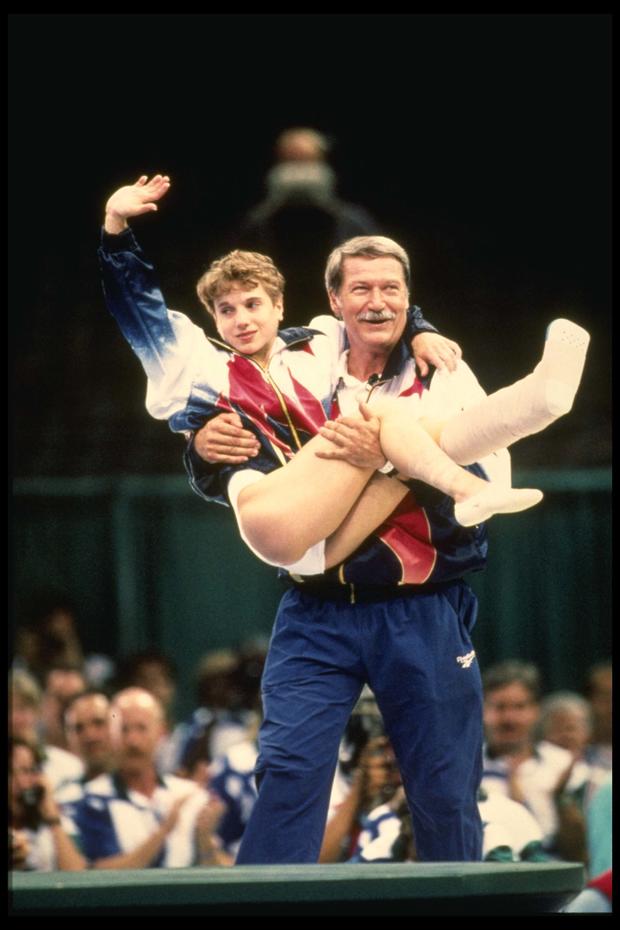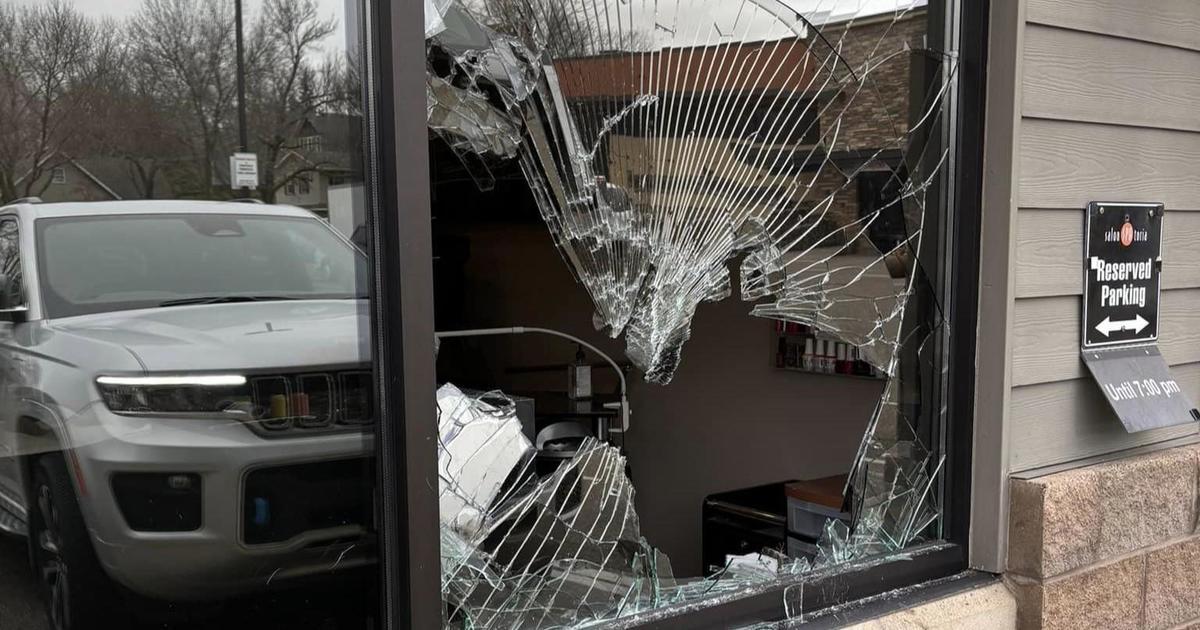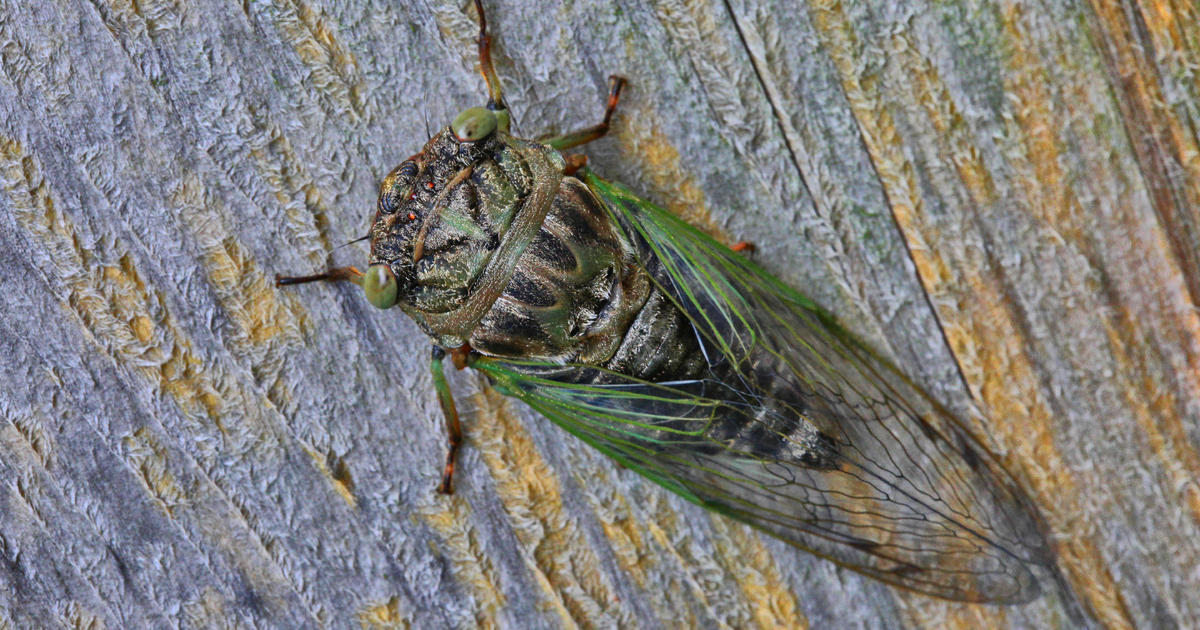Curiocity: Q & A With Olympian Kerri Strug
When the 2011 Visa Championships rolls into town this week, it will no doubt conjure up some memories for one of the most famous gymnasts of all time.
It was roughly 15 years ago when two-time Olympian and gold medalist Kerri Strug became a household name -- almost overnight. You might even say, she was vaulted into a celebrity status. (OK, sorry, that was cheesy.)
After shocking viewers and spectators by taking a tumble and injuring her ankle on the vault -- the last event of team competition -- Strug still had one more run to go. America braced for the worst, thinking Strug's injury had dashed the hopes of the Magnificent Seven's chance for gold.
But Strug wasn't ready to throw in the towel. She got up, completed her second vault, fighting serious pain in her ankle and somehow, miraculously managed to stick the landing. Moments later, she collapsed in pain, but as we'd find out later, her tears were more for joy than injury.
Since that time, Strug has retired from gymnastics and went on to a new chapter in her life. Today, she lives and works in Washington, D.C., runs marathons, travels for special events and is thinking about starting a family soon. Still, she said she'll never completely be able to give up gymnastics -- whether it's hosting camps, helping with clinics or perhaps raising little gymnasts of her own.
Strug was recently in town to help get the Twin Cities excited about the upcoming 2011 Visa Championships this week at the Xcel Energy Center and was nice enough to sit down for a cup of coffee to talk about her time in the spotlight and what she's been up to since.
Q: So how's retirement?
A: Obviously I changed a lot after Atlanta. I was fortunate to have a lot of opportunities that I didn't really anticipate. I started college like right after, like two months later. I think there's different chapters of your life and it was a clear, kind of, break, and then start right after for me. But life is pretty good. I'm happy with how things have played themselves out.
Q: What was it like for you, at such a young age, to be thrown into the spotlight -- on the cover of Sports Illustrated, Wheaties boxes, appearing on SNL, etc.?
A: You know the change in my life was really quick. I was known in the gymnastics community but not really outside of that. I was known as the gymnast who had a lot of talent but couldn't put it together when it counted most, so it's kind of ironic that, you know, when all eyes were on me on that last vault, everything turned out well. But I think it was really exciting. With each new opportunity, I was kind of like, 'OK, this is amazing, I want to embrace this, enjoy this, because maybe this is the last one' and then something else would pop up. I think I just felt really fortunate and excited and knew that there would be other Olympians and other memorable moments to be enjoyed as well.
Q: So, how much did your life change after the 1996 Olympics?
A: I think on many levels, significantly. That was my last serious gymnastics competition, I started college two months later. Prior to that, everything I did revolved around gymnastics -- what I ate, how I slept, what I did. I didn't go on family vacations. You know, my day literally revolved around my training. So when I was done and got to do all these other cool things, it was like, wow, you know. I don't have to wake up early to go to the gym, I can go to class and I can go exercise when I want to, not when I have to. I think that was such a difference, when you have ownership over things. I really lived in a bubble for the majority of my adolescence and after Atlanta, it just opened a world of opportunities and then I was an adult. I had to make decisions for myself and it was awesome, but also a little scary. You had no one who was leading the way with every step and I was going to be making my own decisions, and be held accountable for them, whether they were good or bad. So for someone who was very comfortable maybe having someone like a Bela (Karolyi) that, you did what he said, you did everything in your power to be the best you could and that's all you could ask of yourself. To not have that figure, it was a big change. A change for the better ... So I think I grew up a lot in the months after Atlanta.
Q: What was the college experience like for you?
A: It was interesting. I think looking back, it's like, wow, I was in such a rush. I'm kind of type A and have a goal-oriented personality, like to get things done. I thought, you know, I have to get the best grades possible and I look back and think, wow, college is the time of your life, you should just enjoy, take the classes in the afternoon, sleep in, take some courses that maybe you're not going to get the top grade in, but that you'll enjoy and maybe never have the opportunity to take again. My perspective has changed. At the time, it was all like, I'm a perfectionist and I knew what I wanted to do and wanted completed and then get a job. But I'm happy with my experience there. I made some great friends and I feel like it was a good transition for me to grow up.
Q: So from college, you went into teaching? How was that?
A: I taught primarily at a Title 1 school, where English was their second language. Primarily Asian-American children, so there weren't any disciplinary problems but it was challenging for me, in a sense that, at parent-teacher conferences and what not, I had to have the child kind of interpreting or explaining what I was saying. And again, I'm a perfectionist so I thought I'm going to change every child and I'm going to be the best teacher. But I enjoyed it. It's very empowering to know you're affecting these kids' lives. At the same time, I thought everything was going to be absolutely perfect and I was going to have all these stellar readers at the end of the year and they're all going to absolutely love me and listen to me, and obviously that's not always the case. So it had its challenges. But I think, that's what life's all about. I'm really glad I had that experience and I think maybe down the road, later in life, maybe I'll go back to teaching. I think it's a great profession when you have children of your own and there's all that satisfaction that you do get when you connect with a child, but I decided in my 20s that I maybe wanted to try something different.
Q: Since retiring from the sport, you've continued to be involved behind the scenes. Are you still working with gymnastics now?
A: I do not flip or anything anymore but I do some gym camps in the summer and I'll do some clinics on the side. Through USA Gymnastics, when I have the opportunity to help publicize an event or something, I'll do that. It's great to go to the various competitions and see the rising stars. I think once gymnastics is in your blood, it's kind of always there. But you can't typically do it for forever so you have to find other avenues to keep you involved.
Q: What's next for you?
A: I think most likely starting a family soon. That's what we're thinking. I dunno. I'm happy with how things are, in terms of, I really like that I have a job that I love and we're making a difference, but I also have an opportunity to stay involved in the Olympic movement and stay involved in gymnastics. I really enjoy getting away and doing different promotional events or public speaking. So I hope those opportunities continue and I'm really looking forward to London. I hope to be there. I hope to cheer on Team USA.
Q: Do you think you'll enroll your kids in gymnastics someday?
A: I think gymnastics is such a great sport for basic coordination so we'll definitely put our youngsters in it, and then it'll be up to them. The child has to want it in order to be successful. If they choose not to be in it, that's OK, it taught them a lot and it can transition into other sports.
Q: With the 2011 Visa Championships coming up this week, how are you helping to get people excited about the event and what can those attending expect to see?
A: We're less than a year out from the Olympics, so the national championships are the best of the best, or the best for America, and the Americans are right on top. Team USA is expected to bring home a lot of medals next year. So this is it. We want to see where everyone is. The countdown has begun for London, so to have an opportunity, and for people in the Minneapolis-St. Paul region to have that right here, it's pretty phenomenal. Especially for the youngsters that are involved in the sport or think maybe they want to be involved in the sport, I think they'll really get inspired. There's a bunch of veterans coming back ... but there's also a lot of new ones, up-and-coming, that we really think are going to shine in London. I'm clearly extremely biased but I would recommend everyone come on out. There's going to be something for everyone.
The 2011 Visa Championships begins Wednesday with an opening ceremony and street renaming event at 11:30 a.m. Competition begins at 1 p.m. For tickets, or more information about the event, click here.




